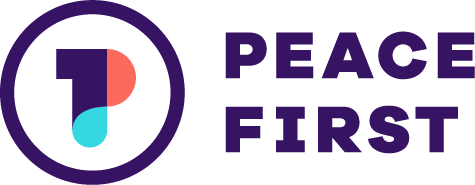Empowering Development: The Power of Local Actions
By Olatomiwa Olusesi, Community Manager for Subsaharan Africa
I remember vividly what summers felt like as a child in Nigeria. It signaled the end of the school year. It was when you had a variety of fruits to choose from at the market, the time of the year when Mangoes, Maize, Cucumbers, and a host of others flooded the market. Excited by the thought of visiting my extended family members and playing with friends whom I had not seen in months, I remember always looking forward to the last days of the school year. There was always so much to look forward to in this season. While all this was happening, I remember seeing and hearing stories of tourists coming to Nigeria, drawn by the allure of summer holidays and the chance to explore a foreign land, and how several people would look in awe at them, a sight many found fascinating year-in-year-out. These tourists, after sightseeing, would sometimes want to contribute to the communities where they were residing/visited for the holidays. These annual visits sparked my early curiosity about the intersection of international aid and local needs, setting the stage for the exploration of sustainable development that I have been on.

I think it’s important to clarify two pivotal terms: ‘Voluntourism’ typically refers to travel involving sightseeing and giving back to the host communities. In contrast, ‘localized change’ signifies initiatives and solutions conceived, led, and implemented by local communities, ensuring a deep understanding of and alignment with the unique needs and contexts of the area.
What I saw growing up, with the people coming to our communities, was voluntourism. You would see them come with books or buy them from local stores and then distribute them to children. Sometimes, they would come along with doctors to give free treatments and consultations to people who were sick in these communities. I remember hearing of communities where these people would come in and build wooden classrooms, donate food items, and even teach the children in these communities literacy and numeracy summer lessons. While their actions were undoubtedly well-intentioned, even as a child, I couldn’t help but wonder about the long-term impact of such fleeting gestures. One can, however, not blame members of these communities, who felt the government had failed them and would accept whatever help they could get from anyone. People who, through no fault of theirs, often did not know where their next meal would come from or had to use hospitals with a doctor-to-patient ratio of 1:30 (this number might be more).
Once summer ends and everyone goes back to where they traveled from, everything returns to the status quo -the students who only got to see their teachers twice a week and who got books donated to them during the summer but are unable to read them, the families who had little to no food, the sick person who no longer has access to medical care, a sign that the problems were stratified, and what transpired during this period was more of a band-aid than a panacea to issues that were systemic and needed holistic approaches to solving them.

I am grateful for the millions of tourists who travel the world, engaging in development projects and relief services, and organizations that deploy experts to design solutions for these communities. Their compassion and willingness to help are, of course, commendable. However, I believe that true transformation lies in a different approach — a shift from temporary relief to sustainable change driven by the very communities affected in a process that is truly participatory.
Becoming a country ambassador at Peace First in 2020 gave me the opportunity to inspire and recruit young people across different communities in Nigeria, young people who understood the challenges their communities faced and how to develop sustainable solutions to address them. Changemakers who would naturally be able to move beyond “pity” to compassion and empathy. Getting to do this on a larger scale across Sub-Saharan Africa has left me inspired by the resilience and grit that young people show every day in creating communities they can be proud of.

I think about Princewill Onyekah (Nigeria), who is working to reduce the barriers to how people in low-income communities and persons without literacy skills access the necessary information and finances to protect themselves from HIV and AIDS, or Gerald Kasiita (Uganda), who is developing climate-resilient agricultural practices in his community, and Mimi Bumah (Nigeria), whose work is centered around providing access to quality education in slums and marginalized communities.
The time has come to pivot towards a model that empowers local change. The inspiring stories of individuals like Princewill, Gerald, Mimi, and countless other young changemakers across Sub-Saharan Africa highlight a simple yet powerful truth: meaningful and lasting change often starts from within the community itself, and the most effective solutions often emerge from those who call these communities home. It’s time to shift the narrative from temporary relief to sustainable change. As readers, I encourage you to help initiate this shift by being more intentional about the volunteer projects you choose to support, questioning the sustainability of their impact, and exploring ways to empower local communities, whether through supporting local initiatives or fostering partnerships that are rooted in mutual learning and respect.
Support our cause by donating to the Youth Investment Fund today: https://peacefirst.org/donate/

